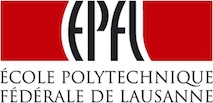Header
Taxi.Coli: smart drug deliveryResearchers all over the world strive to improve the effectiveness of drugs. Emergent strategies such as "Targeted drug delivery" allow a more precise and localized administration of drugs. The aim of this method is to increase drug concentration in a specific location (e.g. a tumor); yet decreasing secondary effects on healthy tissues. This method reduces the frequency and dose of drug administration.
EPFL team’s goal this year is to suggest a drug delivery strategy. The key word of this project is “adaptability”. Our motivation is to explore a way of using E.Coli as a drug carrier in a way that is highly modular; thereby suiting several applications and possibilities of disease treatment.
Using the principles of synthetic biology we will bond nanoparticles containing a drug to E.coli using the biotin-streptavidin interaction. The engineered E.coli will target the site where the drug is required. Upon stimuli it starts to release a protease degrading the nanoparticles and hence delivers the drug.

Blaa
Bla
Blaa
Bla
| You can write a background of your team here. Give us a background of your team, the members, etc. Or tell us more about something of your choosing. | |
|
Tell us more about your project. Give us background. Use this as the abstract of your project. Be descriptive but concise (1-2 paragraphs) | |
| Team EPF_Lausanne |
 "
"




